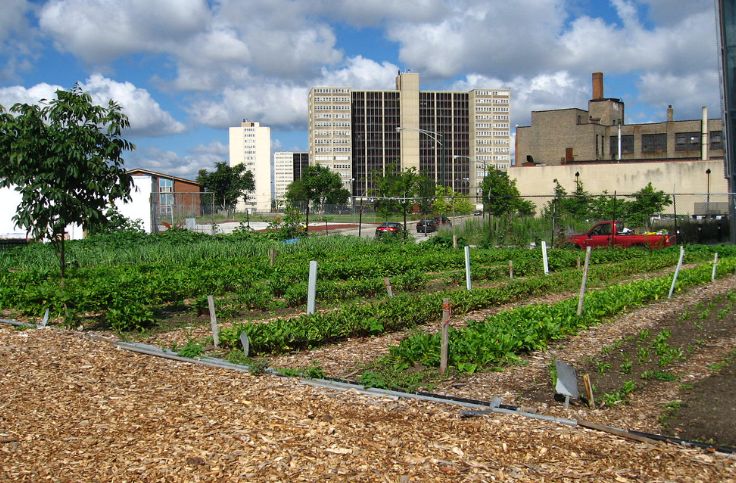Detroit, once a thriving industrial powerhouse, faced significant economic challenges in the late 20th century. The city’s decline left vacant lots and abandoned buildings in its wake. However, in recent years, a new movement has emerged that seeks to transform these barren spaces into productive urban farms. This article explores the birth of Detroit’s first urban farms and the influential role played by Mayor Hazen Pingree in revitalizing the city’s agricultural landscape.
The Rise of Urban Farms in Detroit
In the face of economic turmoil and a shrinking population, Detroit found inspiration in the concept of urban farming. Urban farming involves cultivating crops and raising animals within city limits, creating sustainable food sources and fostering community engagement. Motivated by a desire to address food insecurity and reclaim abandoned land, grassroots initiatives sprouted across the city. These pioneering urban farms have become symbols of resilience and hope, breathing new life into Detroit’s forgotten neighborhoods.
Mayor Hazen Pingree’s Vision for a Greener Detroit
Mayor Hazen S. Pingree, who served from 1890 to 1897, played a pivotal role in the development of urban farming in Detroit. A successful businessman turned politician, Pingree recognized the potential of vacant lots to be transformed into productive spaces. He advocated for the conversion of unused city land into vegetable gardens, encouraging the impoverished residents of Detroit to cultivate their own food. This initiative, known as the “Pingree Potato Patches,” marked the beginning of the city’s urban farming movement.
The Pingree Potato Patches and Their Impact
Under Mayor Pingree’s leadership, the Pingree Potato Patches program gained significant traction. The initiative allowed residents to lease small plots of land for a nominal fee, providing them with the opportunity to grow potatoes and other vegetables. The program not only addressed the immediate need for food during difficult economic times but also empowered individuals and strengthened community bonds. Pingree’s vision inspired other cities to explore similar approaches, establishing Detroit as a pioneer in urban agriculture.
The Legacy of Detroit’s First Urban Farms
The success of the Pingree Potato Patches program laid the foundation for future urban farming initiatives in Detroit. As the city rebounded from economic challenges, urban farms began to flourish across various neighborhoods. Today, these farms provide fresh produce, job opportunities, and educational programs for local communities. The movement has attracted attention from across the nation, with Detroit serving as a model for other cities grappling with similar issues.
Cultivating a Sustainable Future
Detroit’s first urban farms and Mayor Hazen Pingree’s visionary leadership have transformed the city’s landscape, cultivating hope and resilience in the face of adversity. The city’s commitment to urban farming serves as a testament to the power of grassroots initiatives and the impact they can have on revitalizing communities. As Detroit continues to rebuild, the urban farming movement remains a vital component of the city’s sustainable future, nourishing both its residents and its spirit of resilience.
The rise of urban farming in Detroit has breathed new life into abandoned spaces and provided nourishment for the city and its residents. Mayor Hazen Pingree’s visionary approach to urban agriculture paved the way for the development of Detroit’s first urban farms, leaving a lasting legacy. Today, these farms stand as symbols of hope, resilience, and community engagement, driving the city’s sustainable future forward. The success of Detroit’s urban farming movement serves as an inspiration for other cities to explore innovative solutions to their own economic and food security challenges.


